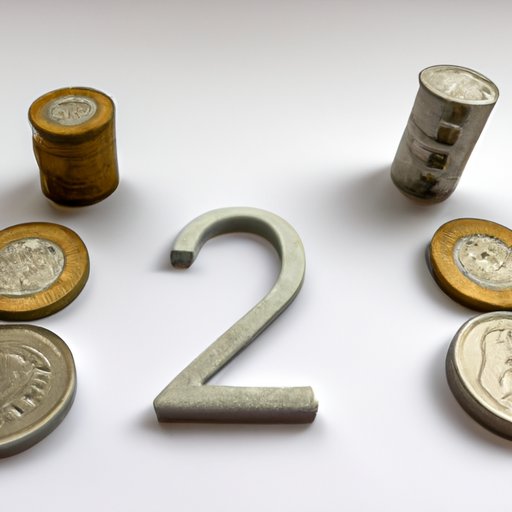
Introduction
As someone who may be travelling to the UK or interested in foreign exchange rates, you may be wondering “how much is 1 pound worth?” The answer to this question can vary depending on a number of factors. This article aims to provide a comprehensive understanding of the value of one pound in different contexts.
The Value of 1 Pound
The value of one pound can fluctuate depending on foreign exchange rates. For instance, when a currency’s exchange rate rises or falls, it can impact the value of the pound. As of August 2021, 1 pound exchanges for approximately 1.38 US dollars. However, it is essential to understand that the value of one pound can vary in comparison to other currencies as well.
For example, 1 pound exchanges for approximately 1.17 euros in August 2021. This means that if you wish to purchase goods worth 1 pound in a country where the euro is the official currency, you would need to pay 1.17 euros. The value of the pound can be impacted by factors such as political and economic events. In recent years, events such as the Brexit vote, interest rate changes, and global economic instability have influenced the value of the pound as well.
The history of the British pound
The origins of the pound can be traced back to Anglo-Saxon times. At that time, the pound was a unit of weight and not a currency. However, the pound ceased to be a weight measure and became a currency in its own right during the reign of King Henry II in the 12th century. Since then, there have been several events that have impacted the value of the pound over time.
One such event was when Britain stepped off the gold standard in 1931, which allowed the value of the pound to float freely. The pound’s devaluation was another significant event that occurred in 1949, which impacted exchange rates and made it more expensive for Britons to travel overseas. Other events include the 1960s sterling crisis, the 1976 IMF bailout, and the 2016 Brexit referendum.
The impact of currency fluctuations on international trade
Currency fluctuations can significantly affect international trade. For example, let’s say a UK-based business is exporting goods worth 10,000 pounds to a German company. If the exchange rate between the pound and euro changes while the goods are in transit, the value of the payment the German company owes will also change. This can lead to a loss, or in some cases, an unexpected windfall.
However, businesses that trade across borders can implement various strategies to mitigate currency exchange risks. For instance, a business can use risk reduction instruments like forwards, futures, and currency options to manage currency risks. It’s important to note that there are costs associated with these strategies, and businesses need to be mindful of these before implementing them.
Tips for travelers
When traveling to the UK, it’s essential to understand how to convert your funds to the local currency. One way to do this is by exchanging money at a bank, bureau de change, or an ATM. Before exchanging money, it’s vital to understand the exchange rates and any associated fees.
Another tip is to avoid exchanging money at airports or train stations, as these places usually offer unfavorable exchange rates and high fees. To save money on exchange rates, one can consider using a credit card that offers favorable exchange rates and low transaction fees.
The purchasing power of one pound
One pound sterling’s purchasing power can vary depending on factors such as economic and political conditions, inflation, and cost of living. As of 2021, the UK ranks among the countries with the highest cost of living globally. However, the cost of living in the UK can vary depending on the region as well.
The cost of living in the UK can impact the purchasing power of one pound sterling in different sectors like food, housing, and transportation. Prices of goods and services can vary by region as well. For instance, London is one of the expensive cities worldwide, and the cost of living here is higher than other regions in the UK.
Conclusion
In conclusion, the value of 1 pound can vary depending on several factors, and it’s essential to understand them to make informed decisions related to foreign exchange rates and travel. Understanding the history and impact of currency fluctuations can also be helpful for businesses and consumers alike. By following the tips mentioned in this article, travelers can save money on exchange rates and make the most of their time in the UK. At the end of the day, the purchasing power of one pound can vary across different sectors and regions, and it’s crucial to take these factors into account when making any significant financial decisions.




